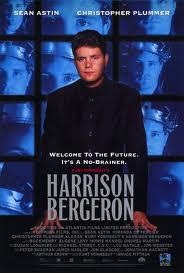Or stumbles along the road.
Unless you have worn the moccasins he wears,
Or stumbled beneath the same load.
I nodded as I helped Ron down from the van--two giant steps--and tried to steady the walker on the hilly drive. The beastly thing had already rolled away from me twice as I tried to lift all 30 pounds of it down from the van. There is no ramp into this hotel on the beach, so I needed to lift the walker up three steps while Ron steadied himself on the railing, then hauled him up the steps, then go back for the beach paraphernalia.
There may be tears in his soles that hurt
Though hidden away from view.
The burden he bears placed on your back
May cause you to stumble and fall, too.
In my childhood and youth, going to the ocean was a favorite activity. How I loved to jump in the waves and build sand castles at the ocean's edge! A day at the beach was full of adventure and family fun, chasing my cousins and my brother in and out of the umbrellas, hunting for seashells, and running under the boardwalk to cool off our hot feet in the damp sand. I loved to bring my own kids to the beach, each one carrying their own bucket and towel. And, when the kids were grown, I loved to just come and sit at the water's edge, letting the song of the waves wash over my weary soul.
But the peaceful lull of the ocean's side is more a memory now. It's too much trouble to get there.
Just walk a mile in his moccasins
Before you abuse, criticize and accuse.
If just for one hour, you could find a way
To see through his eyes, instead of your own muse.

Slowly, steadily we made our way across the lobby to the pool area and I settled Ron into the chair. But I could not handle the walker along with the other stuff I had to carry so, amid Ron's protests, I left it in the security office. Then I pointed out to the guard at the desk that there was no way I could push my 350 pound husband through the beach sand to the water's edge. We waited another 10 minutes while the guard called someone. The guard pushed Ron down the ramps by the pool and onto the sand where a lifeguard took over. I struggled with the other stuff alone.
We made it to the seaside and set up camp, but Ron wanted to go sit at the water's edge. So with some heaving and ho'ing, I managed to get him out of the beach wheels and into a chair at the edge of the ocean. I settled him in with bottled water, sunscreen, and a towel. Then I sought a few moments peace under the umbrella, keeping a watchful eye on Ron.
Brother, there but for the grace of God go you and I.
Just for a moment, slip into his mind and traditions
And see the world through his spirit and eyes
Before you cast a stone or falsely judge his conditions.
Ron loves to talk to people, so he was enjoying himself at the water's edge, splashing in the surf. And, as much as I love my husband, I was enjoying a few moments of peace, away from the demands of caring for an ill spouse. I ran down to check on him every few minutes,making sure he was hydrated and was not burning. People were stopping to talk with him and a few men offered to help him when he needed to get up. For a few moments, I had the luxury of letting someone else take care of Ron.
But peace however hard won, is seldom lasting. While I am certain no criticism was intended, several women did stop by my chair to ask if my husband was alright, if he was "safe" down there. I smiled and nodded and tried to go back to reading. But the peace of the ocean was pretty much gone for me.

"Handicapped accessible" is a sign placed on all buildings that have a ramp or an elevator, even if located in a hard-to-find corner. Buildings constructed before 1970 do not fall under the guidelines of the Adults with Disabilities Act. While it is true that "new" construction must provide access for all, no such requirements are attached to older buildings. So when I booked this little cottage by the sea and was told it was all "handicap accessible" it was only true to a point. Yes, the van will take Ron to the beach, but the van has no lift. Yes, there are beach wheels available, but the ramp ends at the pool area. And as kind and understanding as people may try to be, telling me "it's only two steps up" does not help me when trying to maneuver a large man over concrete.
Eventually, we needed to backtrack our steps. Several of the men who had volunteered to help Ron did their best to get him back into the beach wheels, and I got a lifeguard to push my husband back up to the pool, while carried the rest of the load. Once we traded the beach wheels for Ron's walker, we called the van driver and then needed to negotiate down the steps to wait for her outside. By the time we got back to the house and I unloaded everything, whatever peace I had felt at the ocean's edge was pretty much gone. I got Ron into the house--also advertised as accessible but with four wooden steps--and he fell into bed for a long nap.
 And I sat on the back deck with a cup of tea, contemplating how easily we take for granted access to things we enjoy, assuming others can have the same freedoms.
And I sat on the back deck with a cup of tea, contemplating how easily we take for granted access to things we enjoy, assuming others can have the same freedoms. Remember to walk a mile in his moccasins
And remember the lessons of humanity taught to you by your elders.
We will be known forever by the tracks we leave
In other people's lives, our kindnesses and generosity.
It is not easy being Ron. It is not easy being me. I am often left to carry the burdens Ron cannot. And it is a crying shame that words like "handicap access" are not really what they should be. Just as Universal Design for Instruction allows teachers to build in--not add on--access to the curriculum for all students, Universal Design for buildings needs to take into account the needs of all the population.
So, while the sounds of the ocean will continue to lull me into peace, the journey to the ocean with a handicapped man cannot be taken lightly. Today, we're headed to the pool.
Take the time to walk a mile in his moccasins.
Mary T. Lathrop, 1895

